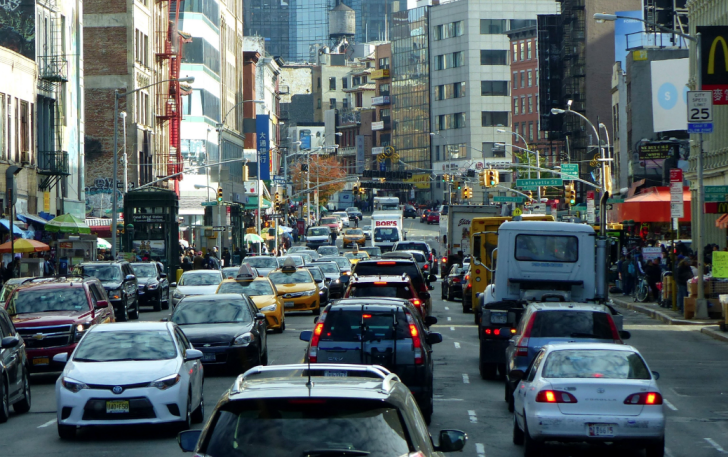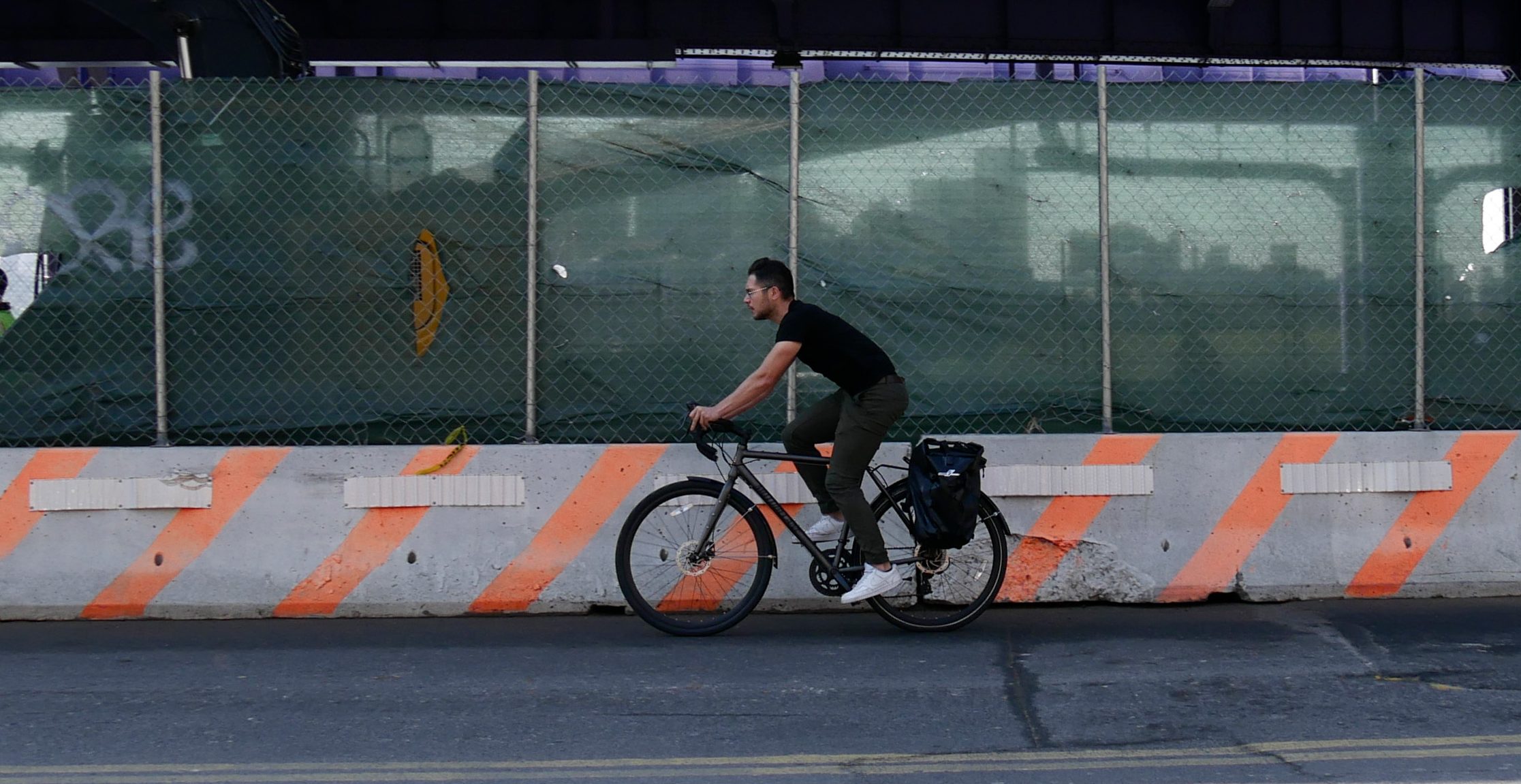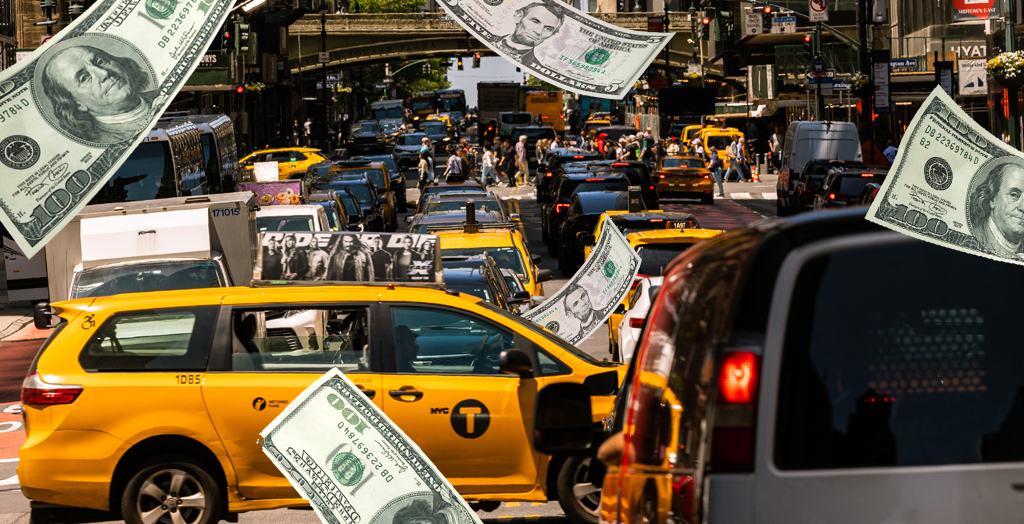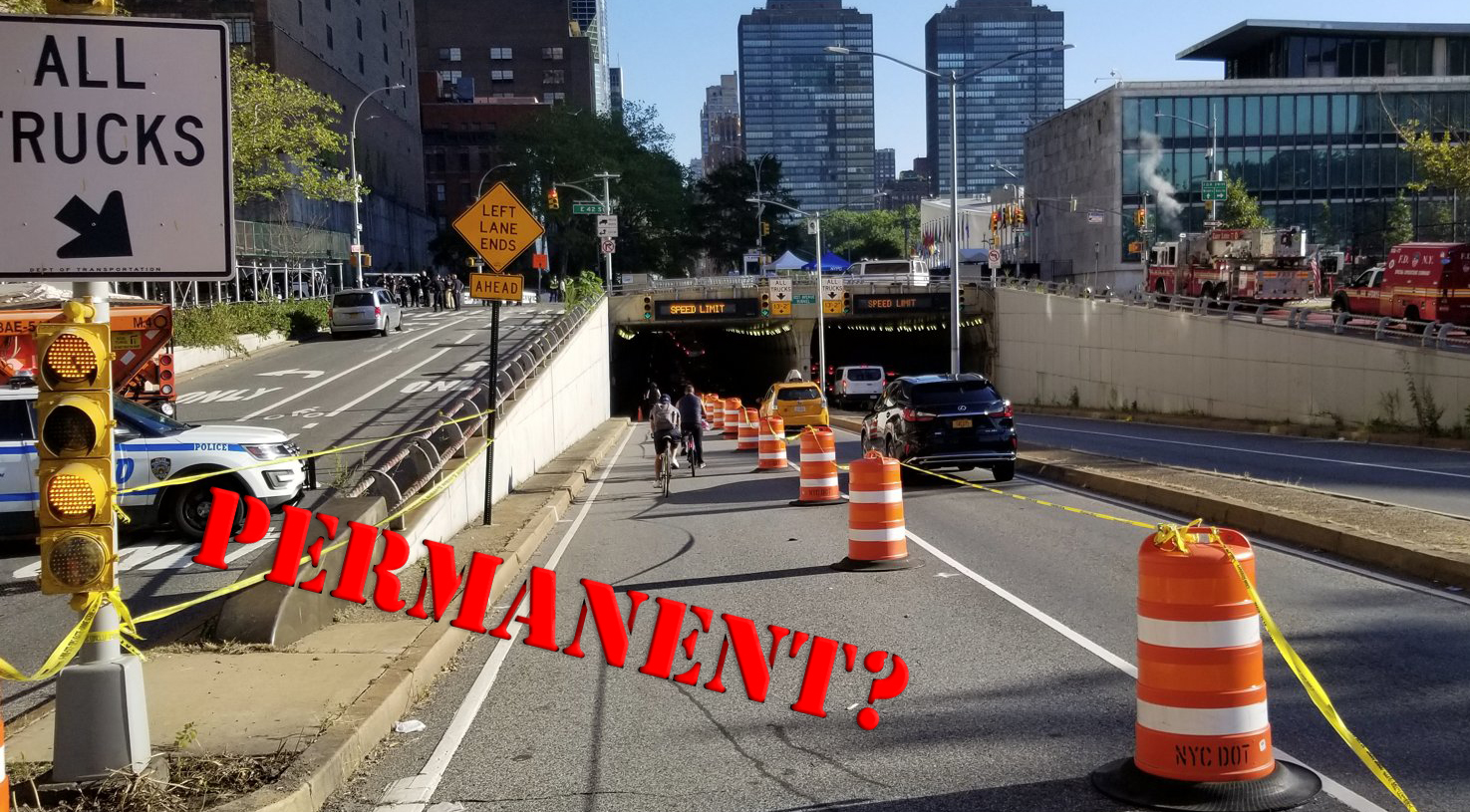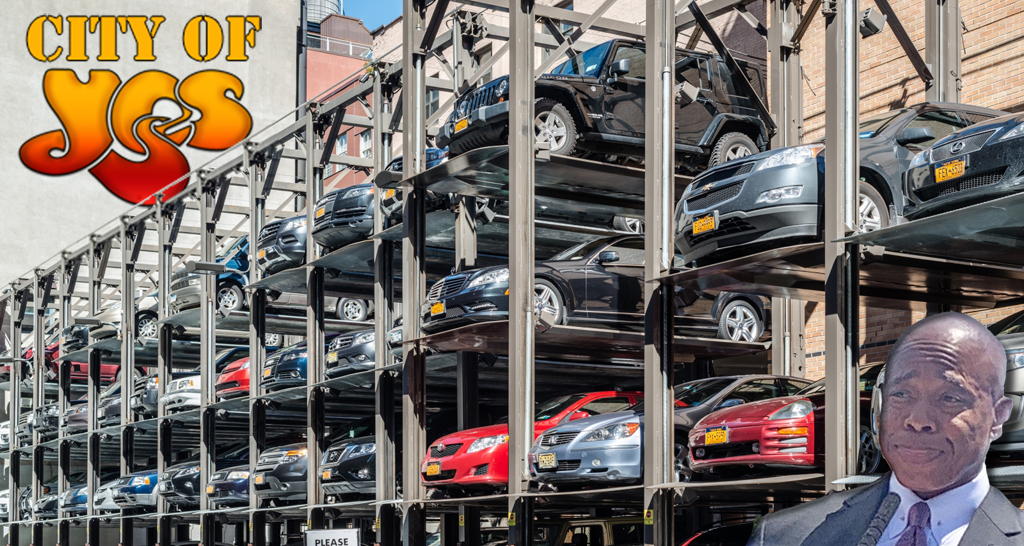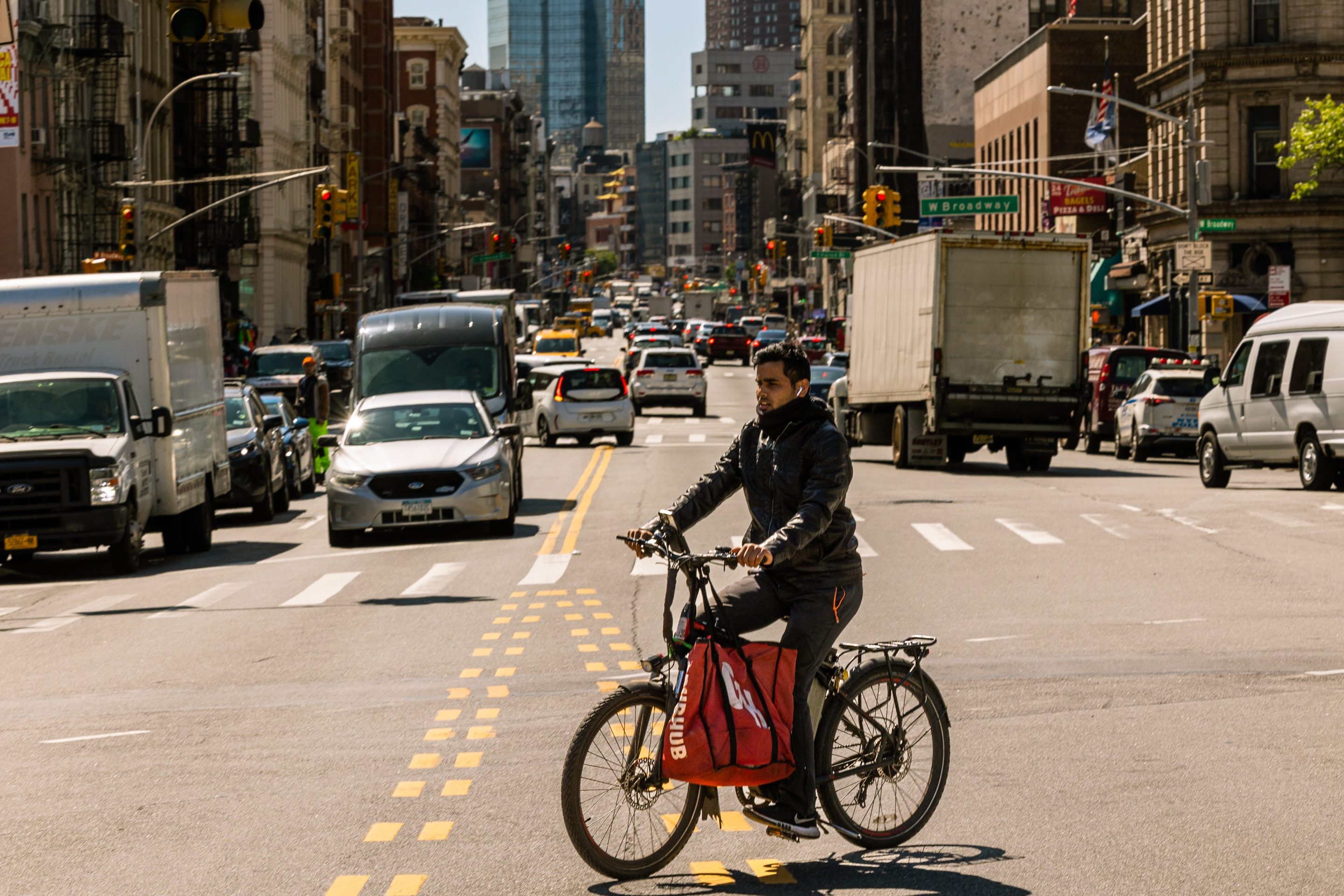Transit experts are not panicking — no, really — after a new report detailed how our increasingly anti-New York president could put the kibosh on congestion pricing just by lifting his itchy Twitter finger.
The federal government must give final approval for the central business district tolling plan approved last year by the state legislature, the Wall Street Journal reported — a scenario that conjures a nightmare of bureaucratic slow-walking or outright Trumpian hostility towards New York similar to his refusal to fund needed infrastructure like the cross-Hudson Gateway tunnel.
The Federal Highway Administration can derail congestion pricing because federal law prohibits the installation of tolls on roads built with federal money — and some of the streets inside the toll cordon, Manhattan south of 61st Street, minus the FDR Drive or West Side Highway, are part of the National Highway System (warning: this map of the federal road system appears to run on Windows 95).
Canal Street, for instance, is technically a piece of Interstate 78. First and Second avenues are also labeled as part of the federal system.
The good news is that the MTA doesn't appear to be dragging — or digging in — its feet about getting the federal approval. The Journal reported that the agency has responded to the feds, and Lisa Daglian, the executive director of the Permanent Citizens Advisory Committee to the MTA said that the agency was doing its homework.
"As recently as January, the MTA filed additional paperwork that the feds were looking for, regarding a traffic study and analysis," Daglian said. "So the conversations continue, they are going back and forth, providing all the documents the feds have asked for."
The federal government bars tolls on federal highways, except when they are set up as a congestion mitigation effort. But Daglian said that federal regulators could do this the easy way — with a simple environmental assessment — or the hard way, by requiring a more thorough environmental impact statement (the Federal Highway Administration did not get back to us).
There's also the wildcard of the president himself, who controls the FHA and has a longstanding beef with the rulers of the city and state, most recently quarreling with them about their apparent contempt for police.
Trump also is in a battle with Gov. Cuomo over the president's decision to bar New Yorkers from the federal Global Entry and other federal "trusted traveler" programs. The decision was announced the day after President Donald Trump criticized "New York's sanctuary policies" in his State of the Union address, NBC News reported. The president and Cuomo are currently fighting about who canceled a D.C. meeting over that and other subjects over the weekend — a disturbing conflict given that the MTA's $51-billion capital plan relies heavily on bonds it can float from the $1 billion that is budgeted to start being captured by congestion pricing toll scanners starting early next year.
The MTA has delayed one part of the congestion pricing process — and it should remedy that immediately so it can prepare for the possibility of an EIS, Daglian said. The agency must finally appoint members of the Traffic Mobility Review Board, which will recommend the rules regarding congestion pricing, including how much the toll costs and who's exempt from it. Daglian said that it was important for the MTA Board to move appoint the new board and begin holding public meetings so that the federal government and the public can be informed of what the congestion toll will actually look like.
"It's absolutely time to convene the TMRB, and it's absolutely time for those meetings to be held in public," Daglian said. "The MTA should be getting all their ducks in a row and be able to proceed immediately to whatever the FHA determines," Daglian said, advising the MTA to be prepared for the federal government to choose the more onerous option available to it.
But could the Trump administration, with one ill-tempered tweet blow up the work done by years of advocates? It's possible, but still somewhat unlikely according to the Tri-State Transportation Campaign's Executive Director Nick Sifeuntes, who noted that there isn't federal money on the line like with other projects.
"This approval situation is little less dire because there's no funding component where the Trump administration is morally opposed," Sifuentes said. He did warn that since the FHA is its own bureaucracy, an environmental review of any kind could take a longer time than would be optimal and threaten funding for the historic 2020-2024 capital plan.
"A few months delays is fine, but a delay for a whole year is a problem, because we're expecting the MTA to move really aggressively on the capital plan," Sifeuntes said. The MTA has said that capital projects would initially be funded by a $25-billion cash infusion with money borrowed against revenue from congestion pricing, an internet sales tax and a mansion tax.
It would be difficult for the MTA to move aggressively otherwise, since the agency is already paying billions in debt service every year. So of the environmental review doesn't move fast enough and the MTA doesn't have congestion pricing's funding stream to borrow against, that could cause problems for completing the $51 -billion capital plan. according to Reinvent Albany senior analyst Rachael Fauss.
"If $15 billion of the $51 billion in the capital plan doesn't come in on time, all things seem to point to the MTA not being able to get all the money quickly and projects not happening, because otherwise it'd be forced to borrow and that's not sustainable for them," Fauss said.
The options available to an MTA without congestion pricing revenue, Fauss added, would be the unappealing choices to borrow so much that the operating budget becomes overwhelmed with debt service payments or to make capital commitments at a slower pace than the agency has promised.
Which is why, even though the federal government is ultimately calling the shots, Sifuentes said that the MTA has to show its work as much as possible.
"This should be a spur for the state and MTA to be impeccable on the elements of congestion pricing. So if the federal government comes back and says 'We don't understand x, y or z,' the state and the authority will have an answer," Sifuentes said. "The more pieces that the state and the MTA line up in terms of implementation of the policy, the faster and easier it will be for the feds to make an ultimate decision."
